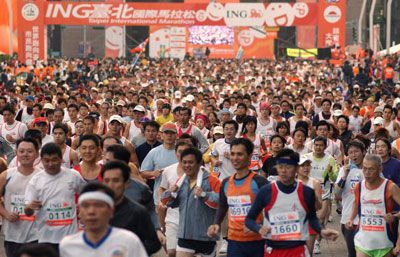Many runners don't realize that resting is just as important as working out when it comes to improving running performance. Running and other training put stress on your muscles and tear them down. Rest rebuilds them stronger. Hard workouts without enough recovery time can put you in danger of overtraining.
A condition generally referred to as Overtraining syndrome (OTS) occurs when prolonged, hard training produces negative physical and psychological effects. The effects include frequent injuries, slower times and a sense that running has become all work and no fun [source: Budgett].
Advertisement
You can experience OTS even if your individual workouts aren't excessively long or hard. It's the lack of recovery that's the problem -- there is no specific level of training that will result in the ailment. If you are getting enough rest and recovery time, hard training does not mean overtraining. OTS does not develop from a single workout or a few days of heavy work. Instead, it's a cumulative imbalance in your training over weeks and months.
OTS can affect both beginners and experienced runners if they exceed their training capacity and neglect to schedule enough recovery time. The problem can be difficult to diagnose -- some of the symptoms are similar to those that any runner experiences after bouts of hard training, such as soreness, fatigue and lack of enthusiasm for the next workout.
It's important to remember that overtraining is an individual problem. Two runners can follow the same training schedule: One experiences the symptoms of overtraining, the other does not. Each runner's overall fitness is a factor. So are additional life stresses -- you are more likely to experience OTS if you are having a tense time at work or difficulties in a relationship. The same level of exertion that was fine for you a few months ago may be overtraining now. You may not be able to maintain the level of training today that you could when you were younger.
On the next page, you'll read about why many runners are vulnerable to OTS and what factors can cause it.
Advertisement



